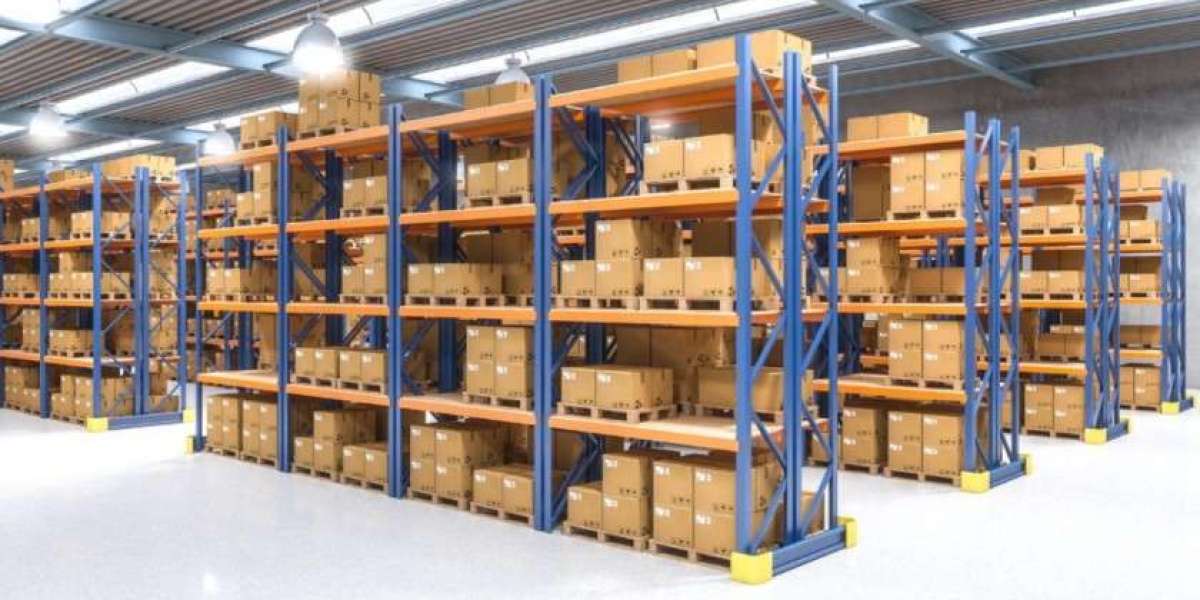Warehouse racks are the backbone of any efficient storage system, providing the necessary structure to organize and access inventory effectively. The manufacturing quality of these racks directly impacts the safety, efficiency, and longevity of warehouse operations. In this blog post, we will explore the significance of rigorous testing and adherence to industry standards in the warehouse rack manufacturing industry. By understanding the risks associated with subpar manufacturing processes and the benefits of working with reputable manufacturers, warehouse managers and owners can make informed decisions that enhance their operational efficiency and safety.
Understanding the Risks of Subpar Manufacturing
The consequences of poor manufacturing processes in the warehouse rack industry can be severe. Subpar manufacturing can lead to structural weaknesses, reduced load-bearing capacity, and increased risk of accidents. Here are some key risks associated with inadequate manufacturing practices:
Structural Failures: Poorly manufactured racks are more prone to structural failures, which can result in costly damages to goods, equipment, and even pose a threat to worker safety.
Reduced Load Capacity: Inferior materials and construction techniques can compromise the load-bearing capacity of racks, leading to overloading and potential collapses.
Shortened Lifespan: Racks that do not meet industry standards often have a shorter lifespan, requiring more frequent replacements and increasing long-term costs.
Increased Maintenance: Subpar racks require more maintenance and repairs, diverting resources away from core business operations and increasing downtime.
The Role of Rigorous Testing in Ensuring Quality
Rigorous testing is a critical component of the manufacturing process for warehouse racks. It ensures that the racks meet or exceed industry standards for safety, durability, and performance. Here are some essential tests that reputable warehouse rack manufacturers conduct:
Load Testing: This involves applying loads to the racks to verify their load-bearing capacity. It ensures that the racks can safely support the intended weight without compromising structural integrity.
Impact Testing: Impact testing simulates real-world conditions where racks may be subjected to accidental impacts from forklifts or other equipment. This test ensures that the racks can withstand such impacts without significant damage.
Material Testing: The quality of materials used in manufacturing is crucial. Material testing checks for the strength, durability, and consistency of the materials, ensuring they meet the required standards.
Fatigue Testing: This test assesses the racks' ability to withstand repeated loading and unloading cycles over time. It helps determine the long-term durability of the racks.
Environmental Testing: Racks may be exposed to various environmental conditions, such as humidity, temperature fluctuations, and corrosive substances. Environmental testing ensures that the racks can withstand these conditions without degradation.
Industry Standards and Regulations
Adhering to industry standards and regulations is vital for warehouse rack manufacturers. These standards are established by organizations such as the Rack Manufacturers Institute (RMI) and the Occupational Safety and Health Administration (OSHA). Compliance with these standards ensures that the racks are safe, reliable, and fit for purpose. Key standards include:
RMI Standards: The RMI sets guidelines for the design, testing, and installation of industrial steel storage racks. Compliance with RMI standards ensures that racks meet rigorous safety and performance criteria.
OSHA Regulations: OSHA provides regulations for the safe operation and use of storage racks in the workplace. These regulations are designed to protect workers from hazards associated with storage systems.
ISO Standards: The International Organization for Standardization (ISO) also provides standards for material handling equipment, including storage racks. ISO standards ensure consistency and quality in manufacturing processes.
Benefits of Working with Reputable Warehouse Rack Manufacturers
Partnering with reputable warehouse rack manufacturers offers numerous benefits that enhance the safety, efficiency, and cost-effectiveness of warehouse operations. Here are some key advantages:
Enhanced Safety: Reputable manufacturers adhere to strict testing protocols and industry standards, ensuring that their racks are safe and reliable. This reduces the risk of accidents and injuries in the workplace.
Increased Efficiency: High-quality racks are designed for optimal performance, allowing for efficient storage and retrieval of goods. This improves overall warehouse productivity.
Long-Term Cost Savings: Investing in quality racks reduces the need for frequent replacements and repairs, resulting in long-term cost savings. Durable racks also minimize downtime, further enhancing operational efficiency.
Customization Options: Reputable manufacturers often offer customization options to meet specific storage needs. This ensures that the racks are tailored to the unique requirements of the warehouse.
Compliance Assurance: Working with manufacturers who adhere to industry standards provides assurance that the racks comply with relevant regulations, reducing the risk of legal and regulatory issues.
Actionable Tips for Selecting a Warehouse Rack Manufacturer
Choosing the right warehouse rack manufacturer is crucial for ensuring quality and safety. Here are some actionable tips for warehouse managers and owners:
Research Manufacturers: Conduct thorough research to identify reputable manufacturers with a track record of quality and reliability. Look for manufacturers who have certifications from industry organizations such as RMI and ISO.
Check References: Ask for references from previous clients to gain insights into the manufacturer's performance and customer satisfaction. Contact these references to learn about their experiences.
Inspect Manufacturing Facilities: Visit the manufacturer's facilities to see their manufacturing processes firsthand. This provides an opportunity to assess the quality control measures in place.
Review Testing Protocols: Inquire about the testing protocols the manufacturer uses to ensure the quality and safety of their racks. Ensure that they conduct comprehensive testing, including load, impact, and fatigue tests.
Evaluate Material Quality: Ask about the materials used in the manufacturing process. Ensure that the materials meet industry standards for strength, durability, and consistency.
Consider Customization Options: If your warehouse has unique storage needs, inquire about customization options. A reputable manufacturer should be able to provide tailored solutions to meet your specific requirements.
Assess Warranty and Support: Check the warranty and support services offered by the manufacturer. A good warranty provides peace of mind, and reliable support ensures that any issues are promptly addressed.
Case Study: S K Steel Products
S K Steel Products is an example of a reputable warehouse rack manufacturer that adheres to rigorous testing protocols and industry standards. By prioritizing quality control and compliance, S K Steel Products has built a strong reputation for delivering safe, reliable, and durable storage solutions. Their commitment to excellence ensures that their clients benefit from enhanced safety, increased efficiency, and long-term cost savings.
In the warehouse rack manufacturing industry, the importance of rigorous testing and adherence to industry standards cannot be overstated. The risks associated with subpar manufacturing processes are significant, but by working with reputable manufacturers, warehouse managers and owners can ensure the safety, efficiency, and longevity of their storage systems. By conducting thorough research, evaluating manufacturers' testing protocols, and prioritizing quality, businesses can make informed decisions that contribute to their operational success. Investing in high-quality racks is an investment in the safety and efficiency of the entire warehouse operation.
In conclusion, the role of warehouse rack manufacturers and pallet rack manufacturers is critical in maintaining the integrity of storage systems. By adhering to strict testing protocols and industry standards, they provide the foundation for safe and efficient warehouse operations. As demonstrated by companies like S K Steel Products, commitment to quality and compliance can make a significant difference in the overall performance and safety of warehouse storage systems.







